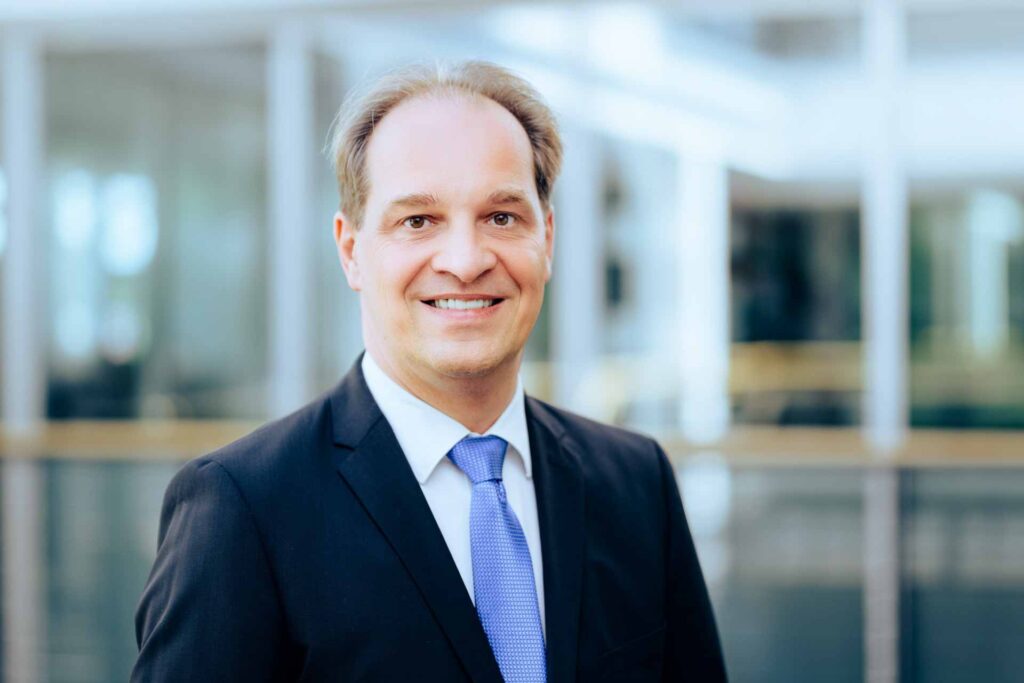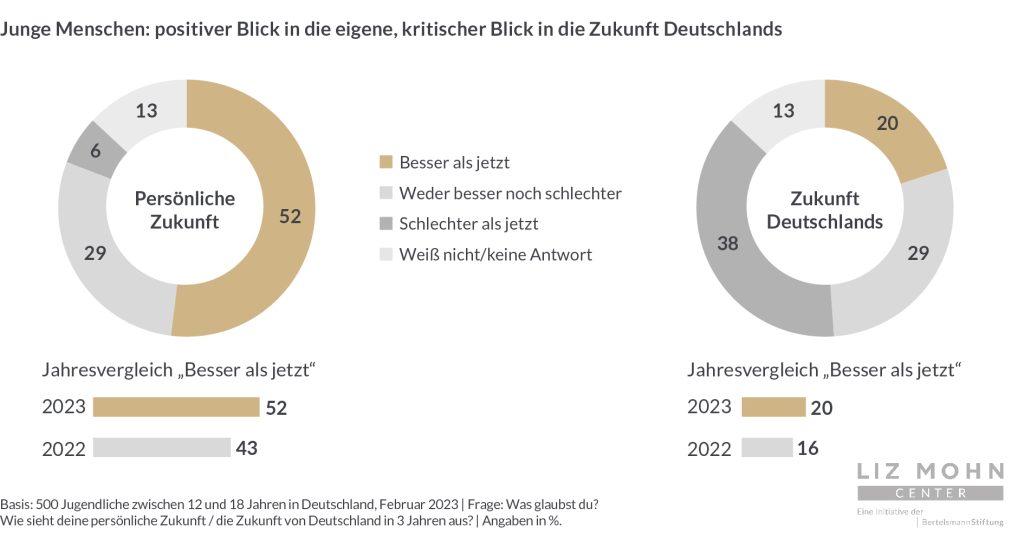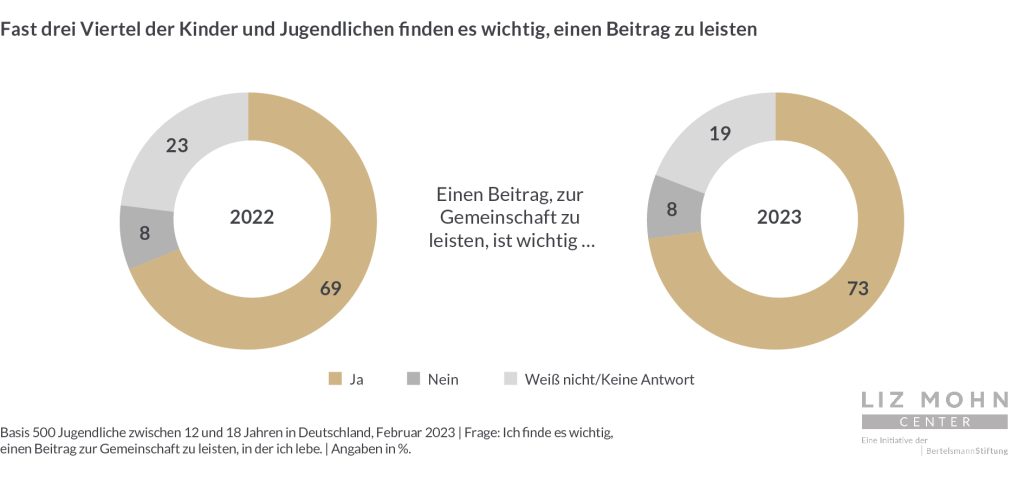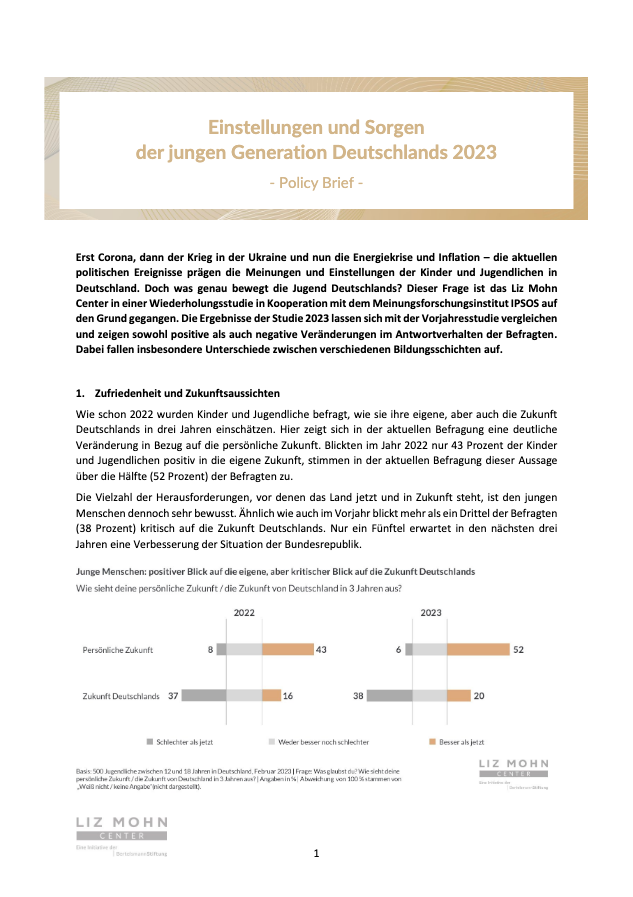Gütersloh, 17.08.2023. The majority of young people in Germany aged between 12 and 18 are more optimistic about their personal future than they were a year ago. 52% say that their personal future will be better in three years’ time than it is now (in 2022, the figure was 43%).
20% of the children and young people surveyed are positive about Germany’s future, but around 38% of respondents are critical about developments and fear that Germany will be in a worse position in three years’ time. These are the key findings of this year’s representative youth survey “Attitudes and Concerns of Germany’s Young Generation” conducted by the Bertelsmann Stiftung’s Liz Mohn Foundation.
The survey will be published in the run-up to this year’s Trilogue Salzburg . The theme of this year’s Salzburg Trilogue is: “International Cooperation in a Polarized World – In Search for a Contemporary Structure”. Liz Mohn, President of the Liz Mohn Foundation named after her, says: “We should use the growing optimism of young people to create a spirit of optimism. Their perspectives, plans and values will shape our society in the coming decades. That’s why it’s important to listen to young people, take them seriously and create attractive conditions for them to get involved.”
Making democracy fit for the future
For 85% of young people, it is important to take responsibility and 73% want to make a contribution to the society in which they live. Last year, these figures were 80% (taking responsibility) and 69% (contributing to society).
However, political engagement appears to be rather unattractive for young people. There is little interest among respondents in making their contribution to society by joining a political party. This is “fairly important” to “very important” to only 20 percent. Two thirds of respondents (67%) stated that they had no interest in getting involved in a political party. “The parties are still called upon to create more attractive conditions for children and young people to get involved. Democracy cannot be taken for granted; young people need attractive options to get involved,” says Jörg Habich, Managing Director of the Liz Mohn Foundation, commenting on the results.
The empirical study also makes it clear that democracy does not enjoy majority support in all social strata. There is an emerging divide, according to which democracy has stable support among more highly educated children and young people, but loses support in the middle and lower education classes. Over three quarters (77%) of those with a higher level of education agree with the assessment of democracy as a good form of government. This means that the proportion in this group has increased by seven percentage points compared to 2022. However, only 55% of respondents with (aspirational) secondary school qualifications rated democracy as good. In the group of respondents with (aspirational) lower levels of education, approval of democracy slipped by a full 15 percentage points compared to the previous year and currently stands at just 40%. Democracy is thus increasingly losing support in this group.
Giving young people a voice
Young people also criticize politicians’ lack of interest in their opinions and attitudes. A majority of 64% of respondents agree with the statement that politicians do not take the opinions of young people seriously. Over half (51%) of respondents believe that politicians do not take the issue of climate protection seriously enough. Almost one in two (47%) agree with the statement that the older generation has too much influence on politics.
Young people in Germany want to shape things and not be deterred by the upcoming crises and challenges, although the associated concerns such as a war in Germany (81%), the failure of their own education (78%) or climate change (77%) are great, but hope also characterizes the view of young people here, with over half of those surveyed appreciating personal freedom more as a result of the war (55%) and thinking about how they can contribute to a better world (52%). “This potential must be exploited by making the appropriate offers,” says Habich.
Additional information:
The survey “Attitudes and Concerns of Germany’s Young Generation”, conducted by the Meinungsforschungsinstitut IPSOS, is based on a representative sample of the German resident population aged 12 to 18. The survey is proportioned and weighted according to age, gender, region and education. The online interviews (CAWI – Computer-Assisted Web Interviews) were conducted from February 10 to 21, 2023. The sample size was 500 participants. A comparable survey was already conducted in May 2022.




